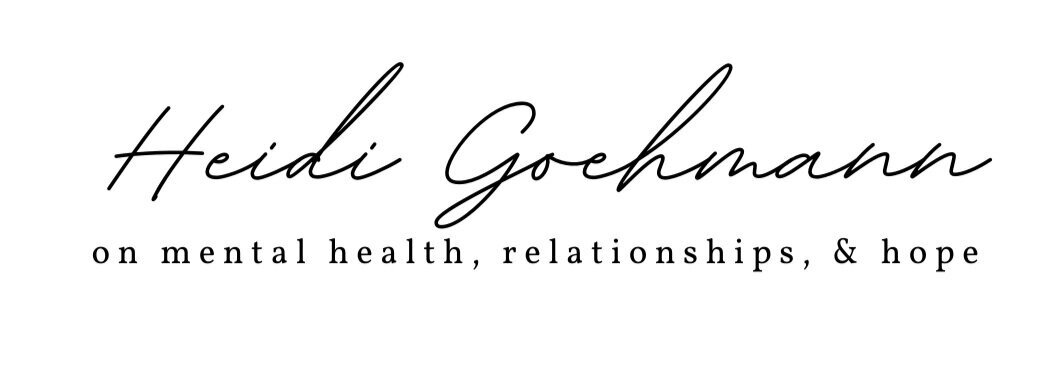Fighting against shallow grace
This past weekend, my husband and I had a three day argument about who was more right.
Worse yet- It’s the same argument on repeat:
“You don’t listen attentively.”
“You don’t talk very nicely.”
We sometimes become magically more mature and remember our “I-statements”:
“I feel unheard when you don’t listen attentively.”
“I feel hurt when you don’t talk nicely.”
After a few days of this argument, sometimes after a few minutes of this argument, we get tired of it, and we move to something that looks like forgiving each other.
“I’m sorry, I know I don’t always talk nice.”
“I’m sorry, I know I don’t always listen.”
We don’t want to hurt each other. I understand that there are marriages and other family relationships that do go for the jugular with each argumentative blow, but that isn’t the dynamic at work between my husband and I, or most relationships each of you have either.
Many arguments end with “I’m sorry.” at the very least and “It’s ok.” or even better, “You’re forgiven.” Save the few extremely loud individuals who love political drama, most of us aren’t trying to duke it out with words to win some trophy, but something eludes us here. There’s a missing piece. We are settling for shallow grace and arguments on repeat.
Lately, I think at our house we’ve managed to get closer to the heart of it, and this stubborn problem…I know it’s mine.
In Pastor Andrew Richard’s book, Christ and the Church, a thirty-day devotion concerning marriage, he includes a really helpful day on reconciliation. It unmasked my tendency to seek shallow grace…for myself, for my husband, and in other relationships.
Pastor Richard, proposes five simple words to begin reconciliation:
I am the worse sinner.
Where I wanted shallow grace, a quick “I’m sorry” from my husband to keep me happy, preferably without having to say it myself, Rev. Richard cuts to the chase: I am the worse sinner. This is the door to real grace – recognizing my utter inability to talk nicely to my husband. I have a fault and he gets the brunt of it. Who cares if he doesn’t listen sometimes! I’m loosing out on grace by pointing out his issues in order to avoid fully looking at mine.
I have sinned.
That’s where grace starts.
I know this can all circle around and you may be dying to say, “But wait, if you never talk about what bothers you, how will you solve any marriage struggles?!”
Good point! But that is for discussion time, not confession time. Arguments demand confession. Discussion is for another time. In the heat of the moment, we most often need confession.
Arguments, disagreements, harsh words give me the chance to take the log-shaped trinket out of my left eye and let Gospel grace in.
It’s so hard, so against my nature. That tells me it’s more Jesus than it is me, and that’s a good thing.
Christ has forgiven me. I have been awful. I have wandered. I have been selfish. I have been rageful. I have been lazy. He actively forgives me anyway. There is no shallow, “I’m sorry” “No problem” in my relationship with Him. There is
“Chief of sinners, though I be.”
“I shed my blood for thee.”
The Word cuts to my heart and because I see my need for grace, I see my need for Him.
My husband mirrors this for me in my daily life. He mirrors all my deepest issues. Other familial relationships, even very close friendships, may do a little of this mirroring too, because of their intimacy. My husband gets the best of me, but he also gets the worst of me. These intimate relationships that lay bare our messy souls remind us that Grace is bigger than my mess.
I am the worse sinner.
Those words stick a little in my throat coming out. I’m learning slowly that it’s better this way. It’s better being healed, than being right.
Christ and the Church is available for purchase here, or get a free downloadable copy here.
Another great resource on the topic of forgiveness, particularly when forgiveness feels like an overwhelming task, is Donna Pyle’s, Forgiveness.

